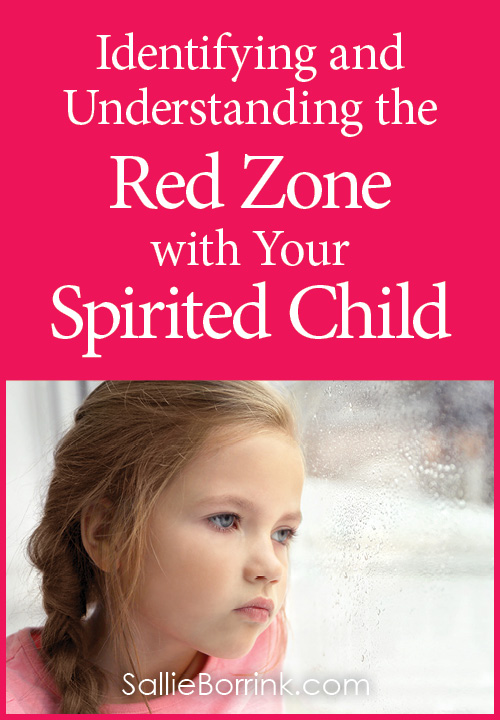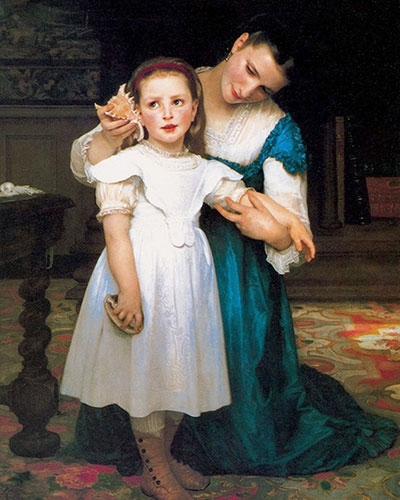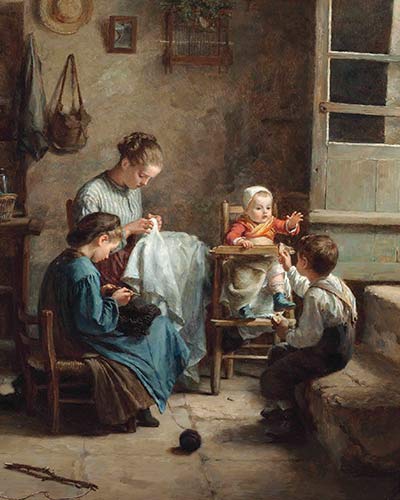I asked David to look through my tickler list of topic ideas and tell me what he thought I was missing. He immediately suggested writing about the red zone. This was a really important topic for us as the parents of a spirited child and I’m glad he suggested it.
The idea of the red zone comes from Mary Sheedy Kurcinka’s Raising Your Spirited Child: A Guide for Parents Whose Child Is More Intense, Sensitive, Perceptive, Persistent, and Energetic. It is basically a term for when a child is overwhelmed by out-of-control emotions. How the child acts while in the red zone varies from child to child. It could be a tantrum, sobbing, etc. However it manifests itself, it is a time of intense, overwhelming emotions.
For spirited kids who are more, the red zone is a big deal.
The challenging part for the parent is how to respond when their child is in the red zone.
We did it all wrong for awhile. But once we figured out the appropriate strategies to utilize for our individual child, we made huge strides as a family. We learned how to avoid our child’s common red zone triggers which is half the battle. And we learned what she needed from us when it did happen.
What Happens In The Red Zone
My natural inclination when my child is upset is to hold her and talk. Talk about what is wrong, talk about how to fix it, and talk it to conclusion. I’m a talking problem-solver.
That is SO not what my child needed.
When a child is in the red zone, she can’t focus on what you are saying. Talking on and on is like pouring gasoline on wildfire. Every child is different, but some strategies that can work include redirecting and distracting. Both can be very effective depending on the age of the child, how far she is in the red zone, and the coping skills she’s learned to that point.
I personally think it is important to allow the child to get the emotions out. Shushing her or telling her to stop on command (or, God forbid, spanking her) is not going to help.
- She has to learn how to recognize and handle the overwhelming emotions so she can eventually learn to calm herself.
- She also needs to know that it is okay to have strong emotions. It is okay to feel deeply and intensely.
- She has to learn that the only thing that makes it a problem is if she acts out in inappropriate ways while she is upset.
Getting Outside Of The Red Zone
The most important thing to realize is this: You cannot deal with the issues of the red zone until the child is well out of the red zone. And getting out of the red zone takes time.
Think about how long it takes an adult to calm down after something upsetting happens. Your adrenaline is rushing, your heart is pounding, and you are flooded with emotions. The same thing happens to the spirited child, but in an even bigger way. There is no way a child recovers from something like that in a few minutes.
And yet we as parents often want to deal with a situation and move on. We’re busy people with a lot on our plate. Sorry, folks.
You cannot rush your child out of the red zone. It simply doesn’t happen with a spirited child.
You can only talk about what happened and how to deal with it after she calms down. This might be HOURS later. It might be wise to even wait to the NEXT DAY if feelings are too raw. If you try to rush it, it will backfire.
Nothing is going to be accomplished by trying to talk about it too soon.
The good news is that spirited children and their parents can develop positive ways to deal with the red zone. It might not be perfect every time, but it can certainly improve. If you are raising a spirited child and aren’t sure how to deal with the red zone, I highly recommend Kurcinka’s book mentioned above. Not only will you better understand the issues of the red zone, but you will also gain a much greater understanding of and appreciation for your wonderful spirited child.
















 6 Reasons Why We Changed Our Mind And Stopped Spanking
6 Reasons Why We Changed Our Mind And Stopped Spanking
When my now 19 yr old was somewhere between 4 and 6 yrs old he would have these meltdown reactions where it was obvious he could not control what he was experiencing. We had a large lazyboy style chair in our living room with a large basket of his favorite books and I would either direct/guide him to it or on occasion literally picked him up and sit him in it and would put a book in his lap and begin talking about the pictures or the story line. He nearly always was able to be redirected and then would sit and read for 5 to 30 minutes until he was totally calmed down. If we re-addressed what triggered the meltdown, it was done very briefly, ie., “Its ok if you want a snack now. You may choose between an apple or a cheese stick, and remember as we already discussed, you will be able to have another brownie tomorrow after lunch.” (His being told no about having a second one being the trigger.) We also talked about this being a tool he could use to learn to use on his own – walking away from a situation briefly until he had control. When he was older he had permission to go to his room until he felt the ability to control his actions and then we would discuss tough issues or whatever, in a civil manner with all involved talking calmly and respectfully Over the years he has gotten much better controlling his intense responses, but we have had more than one hole in a bedroom wall from his fist or head. (He has helped patch and repair them and always, always came back and apologized – acknowledging his difficulty with control and his desire to get a handle on it.) He is now 19 and doing very, very well with it! I believe empowering him to take ownership and also teaching him to recognize the internal feelings and actively work towards controlling his responses to them, were important steps. Also, anytime an adult got angry with him for his reaction and criticised him, ridiculed him, or punished him for it, it always made things worse – sometimes for days. Thanks for addressing better ways for adults to deal with the “red zone!”
My daughter taught us so much, through the years. Her spirited nature has really paid off for her in college, as she is so motivated, inspired, and full of passion as she works in her chosen major in college, leadership and communications. All of the work helping her with her high energy during the early years, has really paid off. We are so blessed by her, and homeschooling met her where she was at, I am so happy to say.